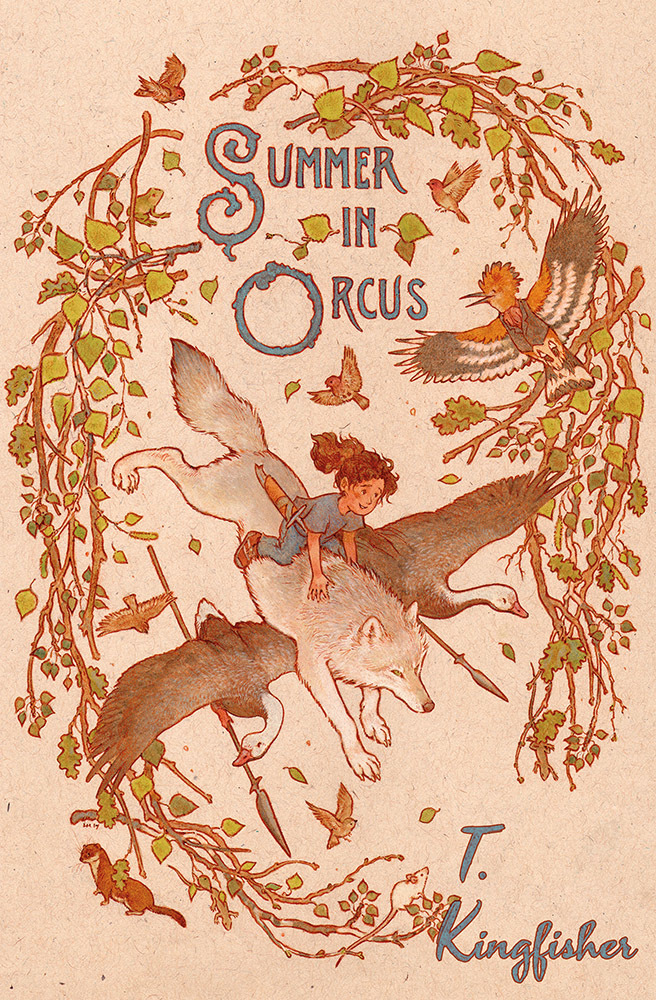Summer in Orcus
 Ursula Vernon discovered while writing this that she had opinions about Narnia. I can’t blame her there. It also shows directly in the novel, as our ten-year-old protagonist, Summer, has also read the novels and is uncomfortably aware of the differences in her own adventure.
Ursula Vernon discovered while writing this that she had opinions about Narnia. I can’t blame her there. It also shows directly in the novel, as our ten-year-old protagonist, Summer, has also read the novels and is uncomfortably aware of the differences in her own adventure.
On one level it is still very much standard portal fantasy. However, Summer is just as aware of those as we are, so we get some commentary along the way. However, while Narnia is the main touchstone here (including the trope of larger, talking, animals), it lends itself to useful comparisons elsewhere. The main difference from all of these is Vernon’s adult take on the nature and aftermath of violence. Generally, portal fantasy takes the ‘boy’s adventure’ route where violence is part of the package of fast-paced action, and villains generally boil down to physical obstacles. They never completely go down that route, but the acceptance of battles and the inevitable sticky end for the villain is part of the genre.
Vernon subverts this last tendency, but doesn’t completely escape it. Both work really well, and the book is highly recommended on that basis alone. At the same time, everything else here is also excellent. As you would expect from a Kingfisher/Vernon novel, the characters are a delight, and the world is consistent and wacky.

Discussion ¬